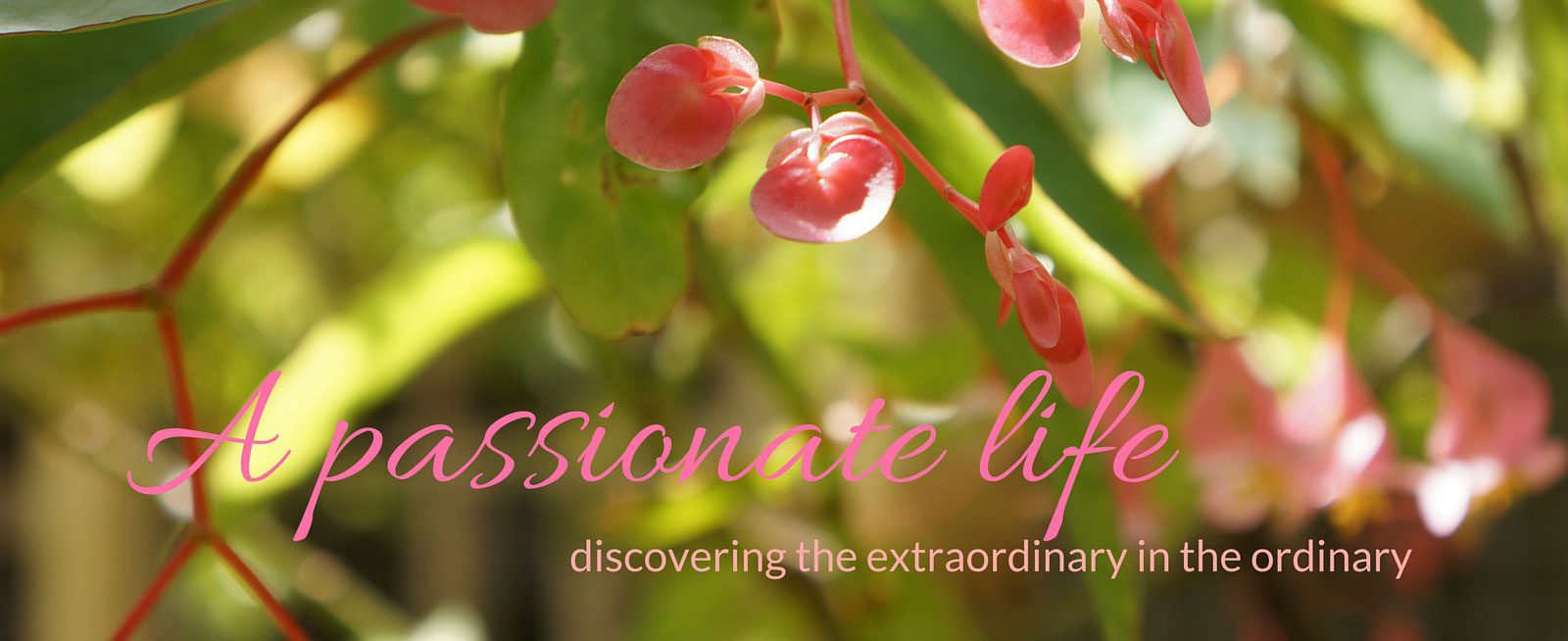Your life is created first in your mind, then in your world
~ Janet and Chris Attwood
To live a passionate life is an inspiring ideal, but what does it mean? Some say that it’s living an authentic, purposeful life. But what does that look like? I’ve been looking for guidance and clarity. And boy, is there a plethora of superficial ‘Ways to find your passion’ and ‘Easy steps to live a passionate life’ out in the ether.
‘Follow your passion’ is a trope tossed about casually as the solution to our unhappiness with our lives, work, or relationships. But ask people what their passions are and most are hard-pressed to come up with just one. For many, the nine-to-five workday and the extra hours of domestic commitments don’t leave much time for following our passions – let alone finding out what they might be!
Simplistic slogans and ‘Easy steps to living a passionate life’ haven’t been very helpful. But I’ve just found a great book that has cracked it open for me — The passion test, by Janet and Chris Attwood.
The passion test explores what it means to live a passionate life. The authors talk about passions as clues to your purpose in life. Sounds lofty and idealistic, I know. But it’s not. They provide the tools, or the system to help you elucidate your passions, your purpose, your mission in life. A system is a good description for the passion test. It brings to mind order, procedure, and organisation.
The aim of the passion test is to help you achieve clarity on the things that are meaningful and deeply important to you. A passion isn’t something that excites you briefly and it’s NOT about setting goals.
The Attwoods explain that goals are the things you choose to create in your life, whereas passions are how you live your life. Goals are about outcomes, what you aim to achieve. Passions are about process. In their words, “Think about what you will do, be, and have when your life is ideal.”
An example:
Living a life of peace — is a passion.
Creating peace in the world —is a goal.

I’ve been working through the exercises which begin with listing at least ten of the things that would give you a life of joy, passion and fulfilment. Through a process of elimination, the list is narrowed down to five passions. You should write them down beginning with a verb relating to doing, being and having, which completes the sentence:
When my life is ideal, I am ………………………
It was surprisingly difficult to come up with my list of ten things and then to narrow it down to the five things that are most important to me.
The authors suggest some questions to ask yourself to help develop your passion list:
- What do you love to do?
- What kind of environment do you love to be in?
- What kind of people do you love to be around?
- What excites you?
- What are you good at?
- What are your unique skills and talents?
Your passion list is private, not to be shared and it can change as time goes on. For me it provided clarity on how I want my life to be. And now that I have clarity, it’s time for the tricky part — doing what it takes to ensure that my life will transmute. Developing the list is only the first part in the process.
Each item on the list requires attention. The purpose of your list, according to the Attwoods, is to keep your attention on it and that, “Whenever you are faced with a decision, or an opportunity, choose in favour of your passions.”
But there must be more to it! Sure, I can keep my attention on my intentions but in order for me to become a maestro on the piano, reading my list several times a day is not going to cut it. I need to work at it.
The word system comes into play again. James Clear says that putting a system in place and sticking to it, is a good way to make progress and get things done. It comes down to developing a habit and committing to the process for the long term. When you delve deeper into your passion list, you’ll be able to recognise markers or milestones which signal that you are on track to living that passionate life. When I wrote my markers, it was clear that there is much work to be done.

One of my markers is to be able to play Beethoven’s Moonlight Sonata fluently. My piano has been sitting idle, gathering dust for many years (yes, shameful!) so it’s not going to be easy. My first thought was to start practicing the piece but I found that my fingers were stiff from lack of playing and I couldn’t find the notes on the page. Giving up isn’t an option, so I’ve put a system in place.
In his book, Peak: Secrets of the new science of expertise, the psychologist, K. Anders Ericsson asserts that most of us have the potential for excellence —it’s just a matter of cultivating it though deliberate practice.
What, you ask, is deliberate practice?
Ericsson puts it well:
Deliberate practice is the breakdown of expertise into a series of smaller, attainable practices. A deliberate practitioner engages in structured activities that improve performance in a specific area. The goal of deliberate practice is not just to reach your potential but to build it, to make things possible that were not possible before. It takes a long time. . .
Although he’s talking about becoming skilled in a particular area, like playing a sport or doing a job, deliberate practice is useful when you are on the path to living a passionate life. Small chunks are good. Scales and easy piano pieces are what I’m working on and I’m hoping to build the habit of practicing for forty five minutes every day. It’s my system to help keep my attention on my intentions.
We often hear that it takes 21 days to form a habit, but I’m not counting the days, I’m just making sure that I play the piano every day.
Small steps, deliberate practice, a purposeful life.
As Janet and Chris Attwood say, “What you put your attention on grows stronger in your life.” Do you have a passion or a purpose that you are putting your attention on?
Love to hear your thoughts!



I simply love this book. I am even more thrilled about the way you have shared the essence of The Passion test.
You broke down and clarified some of the most valuable tools of this book. You rekindled passion in me!
A lovely read and inspiring.
Thanks
Nicolette
Yes Nicolette, ‘The Passion Test’ has been my guide to achieving clarity on my passions…thanks to my lovely friend who has been a huge encouragement to me and who lent the book to me at a time when I needed to find a new direction.
Thanks so much for your lovely words!
I’m so happy that that it’s provided some inspiration and I say…go with your passions! ?